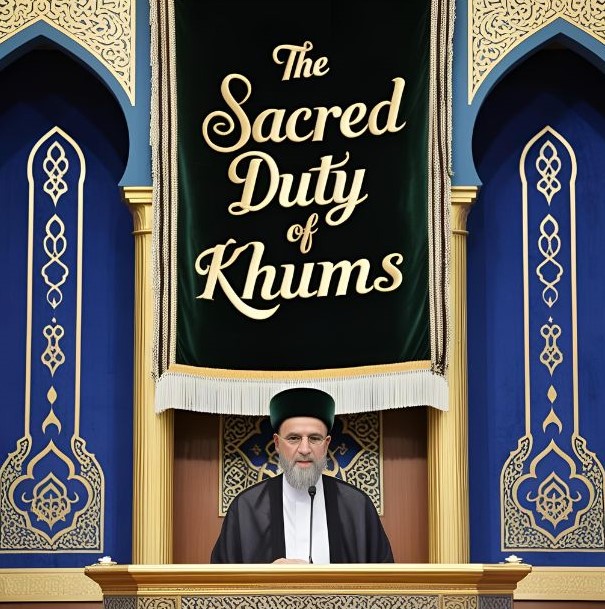The Sacred Duty of Khums:
Supporting the Needy and Strengthening Faith
Khums is a traditional Islamic practice that holds significant importance in Shia Islam, more so than in some other Islamic traditions. The term "Khums" literally translates to "one-fifth" in Arabic and refers to the religious obligation of paying one-fifth (or 20%) of one's annual surplus income after deducting expenses for the year. This practice is deeply rooted in the Quran, Hadiths (sayings of the Prophet Muhammad SAWAS), and the teachings of the infallible Imams (AS), making it a cornerstone of Shia Islamic finance and charity.
Historical Context
The basis for Khums can be found in the Quran, Surah Al-Anfal:
“And know that whatever thing you may come by, a fifth of it is for Allah, and the Messenger, and for the relatives of the Messenger, and the orphans, for the needy, and the destitute traveller; if you believe in Allah and what We sent down to Our worshiper on the day of victory, the day when the two armies met. Allah has power over all things”. (8:41)
According to the authentic hadiths, this obligation is to include not just the spoils of war but also the surplus of one's annual income, thereby broadening its application to support the Islamic community and its leaders.
Significance of Khums in Shia Islam
For Shia Muslims, Khums is not just a financial obligation but a spiritual one that reflects their commitment to social justice, the welfare of the Muslim community (Ummah), and the teachings of the Ahl ul-Bayt (the family of the holy Prophet).
The collected Khums is divided into two equal parts: Sahm-e Imam (the Imam's share) and Sahm-e Sadaat (the share for the descendants of the holy Prophet). The Imam's share is used for religious leadership, education, and any other purpose deemed beneficial for the Islamic community by the Marja' (the highest religious authority), while the Sadaat share is distributed among the needy descendants of the Prophet (SAWAS)
Administration of Khums
The administration of Khums is a well-organised process within Shia communities, overseen by the Marja' (the highest jurisprudence authority) or their appointed representatives. Shia Muslims are encouraged to calculate their surplus income annually and pay their Khums to a trusted religious authority or directly to organisations that are authorised to collect it on behalf of the Marja'. This system ensures that the funds are used in accordance with Islamic principles and for the benefit of the Muslim community.
Contemporary Relevance
In modern times, Khums continues to play a crucial role in the Shia Islamic world, funding educational institutions, mosques, charitable endeavours, and the welfare of the needy within the community. It also serves as a means of maintaining the independence of Shia religious institutions and scholars, enabling them to operate without reliance on political powers or governmental institutions.
Conclusion
Khums is a distinctive aspect of Shia Islam, embodying the principles of social justice, charity, and communal support. It serves as a reminder of the responsibilities of wealth and the importance of caring for those in need within the community. By fulfilling this obligation, Shia Muslims express their allegiance to the teachings of the Quran and the Ahl ul-Bayt, reinforcing the bonds of faith and community solidarity.
To learn more about pure Islam, please visit our website: www.findtruth.co.uk











